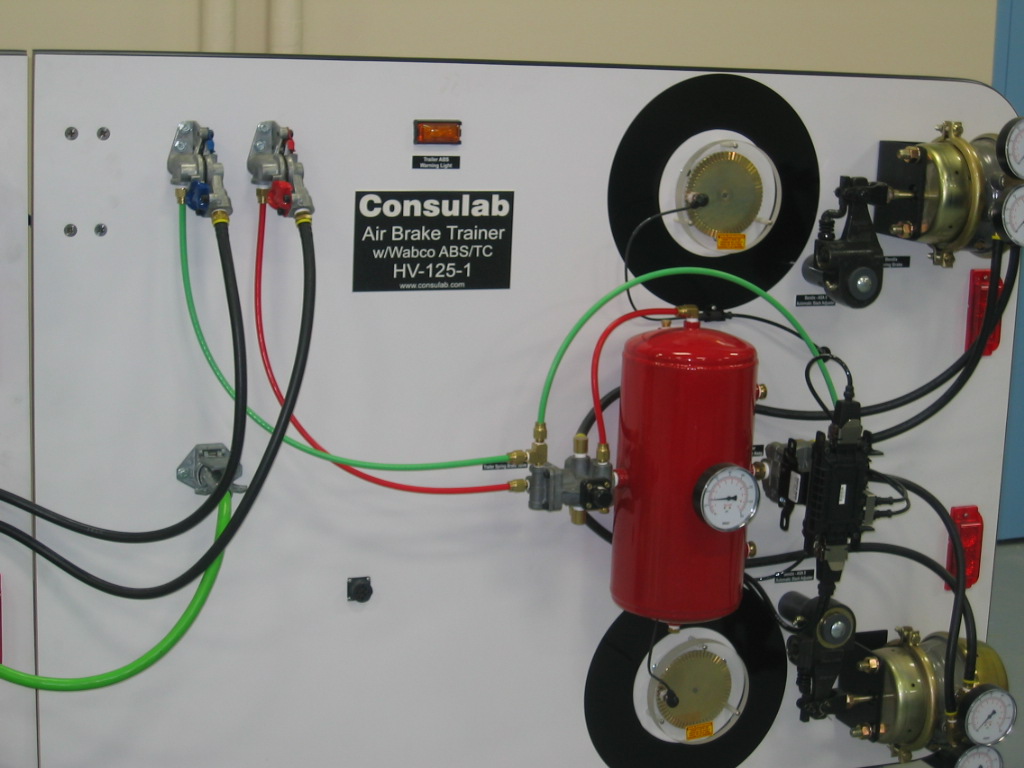Heavy Equipment Technician
Heavy Equipment Technicians provide an important service
Schools:
Location:
Program length: 8 Weeks
Start date: Level 1: April 7 - May 30, 2025
Credential:
- Completion of Apprenticeship and Certificate of Qualificiation from the GNWT
Delivery:
- Classroom
- Shop

Program Description
The Apprenticeship Heavy Equipment Technician (HET) Program is designed to train apprentices to diagnose, test, service and perform preventative maintenance on: hydraulic, air and electric braking systems; trailer systems and components; electrical circuits, lighting and electronic control systems; and hydraulic systems. Due to the nature of the work of the HET, it is imperative that safety be taught on a continuous basis throughout this program.
This program outline is based on the NWT/Alberta Heavy Equipment Technician Apprenticeship Course Outline.
The goal of apprenticeship training is to develop competent journeypersons through a combination of on-the-job and technical training.
The Apprenticeship HET Program at Aurora College provides two of the four levels of technical training.
Program Eligibility
Program participants must be registered with the GNWT, Department of Education, Culture and Employment (Apprenticeship Division) prior to registering at Aurora College.
Applicant Assessment
- Be at least 16 years of age
- Be physically capable of performing the work involved in the HET trade
- Have a genuine desire to become a good tradesperson
-
Find a suitable employer, who holds a Journey certificate in the HDET trade or employs the holder of a Journey certificate in the trade and who is willing to hire and train the applicant
-
Obtain an overall average of 70% and a minimum of 50% in each of the subsections (mathematics, English and science) on the Trades Entrance Examination, Cluster #3
Program Admission
Participants will be admitted to this program based on the eligibility requirements set by the GNWT.
Program Information
Aurora College provides technical training for two of the four levels that comprise a HET apprenticeship. Each level of technical training is 240 hours (eight weeks).
Curriculum requirements are set by the GNWT.
Participants must take the full level in its entirety.
Participants are exposed to the program concepts through lectures, discussions, demonstrations, independent study and group study. They are then given opportunities for skill development through a series of practical applications.
Program Objectives
The objectives of this level are to enable graduates to carry out the tasks required of a level 2 apprentice in a responsible, competent, and safe manner. These tasks include:
- Diagnosing, service-testing and performing preventative maintenance on hydraulic, air and electronic braking systems; trailer systems and components; electrical circuits, lighting and electronic control systems; and hydraulic systems.
- Using and maintaining hand and power tools in order to carry out repairs.
- Reading and understanding work orders, preparing estimates and interpreting technical manuals.
- Writing service reports, diagnosing the cause and cost of failures, and keeping service analysis records.
- Performing assigned tasks in accordance with safety, quality and production standards required by government and industry.
Completion Requirements
Theoretical and practical assignments and written examinations are used to evaluate participant success.
Course marks are weighted based on a formula provided by Apprenticeship and Occupational Certification, Government of the Northwest Territories.
In order for a participant to pass their apprenticeship level training, they must achieve a class mark of 65% or greater, obtain a shop mark of 65% or greater and complete all course work.
A participant who fails Aurora College technical training must repeat the training regardless of the result obtained on the level examinations administered by the GNWT.
“An apprentice who is absent from a trade instruction course in which he or she is enrolled for more than 5% of the total time of the course may be terminated from that course by the supervisor and be subsequently scheduled to repeat the entire course.”
Article 20(1), NWT Apprenticeship, Trade and Occupations Certification Regulations
Participants must achieve a mark of 70% in the GNWT-administered level examination in order to progress to the next level of technical training.
Document of Recognition
Level 1: Certificate of Status Level 2 from the GNWT.
Level 2: Certificate of Status Level 3 from the GNWT.
Note: Participants who successfully complete Level 1 may also be issued a Transport Trailer Mechanic Certificate of Qualification by the GNWT.
Important Information
Participants in Apprenticeship programs must be registered Canadian apprentices in the level to which they are applying. Aurora College can accept apprentices from jurisdictions across Canada, however, all participants must be registered with the Government of the Northwest Territories Apprenticeship Division (apprenticeship@gov.nt.ca) prior to registering with Aurora College.
For more information about the above visit: www.ece.gov.nt.ca/en/services/apprenticeship-and-trades
